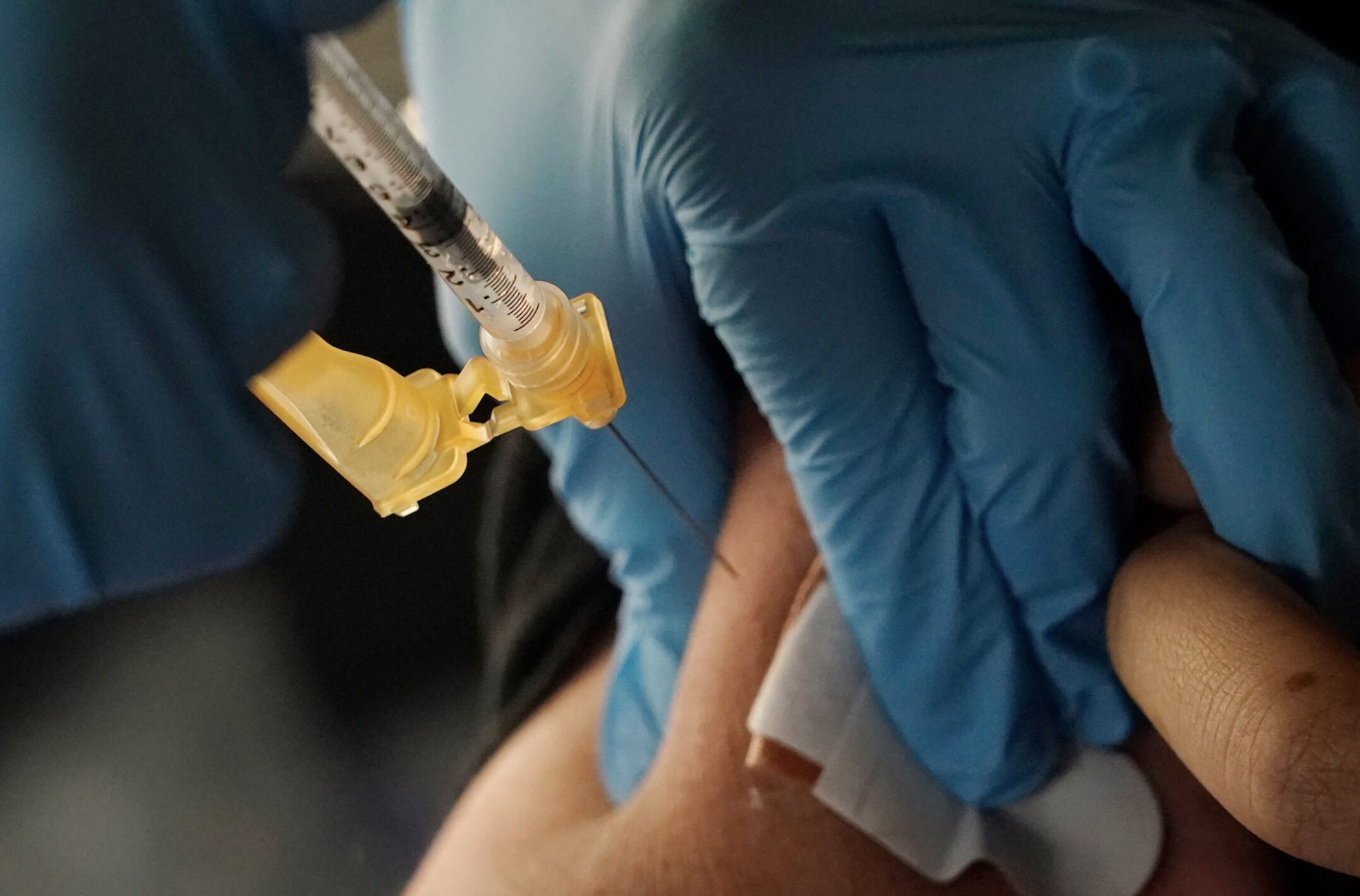
Edward Fishman: The Collapse of the Oil Empire?
EPISODE SUMMARY Podcast host Alex Gabuev is joined by Edward Fishman, a senior research scholar at the Center on Global Energy Policy at Columbia University,…
Thought Leader: Edward Fishman
When public health officials talk about COVID-19 variants, people pay attention. And that’s exactly what happened after former Food and Drug Administration Commissioner Scott Gottlieb, MD, tweeted about a new Delta subtype over the weekend.
“UK reported its biggest one-day Covid case increase in 3 months just as the new delta variant AY.4 with the S:Y145H mutation in the spike reaches 8% of UK sequenced cases,” Dr. Gottlieb wrote. “We need urgent research to figure out if this delta plus is more transmissible, has partial immune evasion?”
As Dr. Gottlieb went on to explain, “The variant has been in the UK since about July, but it has been slowly increasing in prevalence. There’s no clear indication that it’s considerably more transmissible, but we should work to more quickly characterize these and other new variants. We have the tools.”
If you thought dental insurance couldn’t make a difference to your business, it’s time…
From United Concordia Dental
He also offered this bit of perspective: “This is not a cause for immediate concern but a reminder that we need robust systems to identify, characterize new variants. This needs to be a coordinated, global priority for Covid same as similar international efforts have become standard practice in influenza.”
People on Twitter had questions about this variant, and that’s fair. Here’s what you need to know about the AY.4 variant and the new AY.4 plus S:Y145H mutation—also known as AY.4.2—that’s suddenly getting attention.
You might think of AY.4 as a cousin of the Delta variant. AY.4 remains the dominant Delta “lineage” in the UK, according to an October 15 report from the UK Health Security Agency. It currently accounts for about 80% of sequenced of cases in the UK, Christina Pagel, PhD, director of the Clinical Operations Research Unit and professor of operational research at University College London, tells Health.
In the US, the AY variants—aka Delta variants—are listed by the US Centers for Disease Control and Prevention (CDC) as variants of concern. That means there is evidence that these variants may be more infectious and cause more severe disease than the original SARS-CoV-2 (the virus that cases COVID-19). They also may be better able to evade protection from the vaccines and existing treatments.
The CDC, however, doesn’t break out AY.4 separately from the other AY variants.
AY.4.2 is the proposed name for a new Delta subtype, the one that Dr. Gottlieb specifically calls out in his tweet. It’s a combination of AY.4 plus the S:Y145H spike mutation. At present, this new subtype represents about 8-9% of cases in the UK, says Pagel.
AY.4.2 is increasing in frequency and is being monitored, per the UK Health Security Agency report.
Where are the AY.4 and AY4.2 Delta variants?
While currently in the UK and India, it’s unclear whether AY.4 or its new subtype have been sequenced in the US. The CDC’s variant tracker lists the Delta variants AY.1 and AY.2 but doesn’t specifically mention AY.4 or AY4.2.
“AY.4 is not that common in the US and AY.4.2 not at all,” Pagel notes in an email. “At most AY.4.2 is about 10% more transmissible than Delta—so a bit worse but not that much.”
Even AY.1 and AY.2 barely register on the CDC tracker. The original Delta variant (aka B.1.617.2) makes up 99.9% of COVID-19 cases in the US right now.
As Dr. Gottlieb hinted, there’s not a ton of information out there about these variants at the moment.
“All of these lineages have been called ‘Delta Plus,'” infectious disease expert Amesh A. Adalja, MD, a senior scholar at the Johns Hopkins Center for Health Security, tells Health. “There’s no significance in whether they change the behavior of the virus or not, and there has not been any conclusive evidence that they’re anything above and beyond the Delta parent strain.”
Viruses mutate, and COVID-19 is no exception, William Schaffner, MD, an infectious disease specialist and professor at the Vanderbilt University School of Medicine, tells Health. “We will see the occasional variant pop up,” he says. “But it won’t necessarily overtake the original Delta variant.”
Dr. Adalja says it’s “expected” that there will be new Delta variants that surface, noting that “everything that happens now is going to come from Delta” given that it’s the dominant strain in the US.
But Dr. Adalja also says that it’s “very early” to see if AY.4 (or its subtype) will end up being anything significant. “All of these variants need to be characterized and studied in detail before we can say if they have any difference in severity,” he says.
The best way to protect yourself from any COVID-19 variant is the same as always, Dr. Adalja says. That means getting vaccinated, getting a booster shot if you’re eligible, and continuing to follow COVID-19 safety precautions like wearing a mask in public indoor spaces and when you’re around people who are unvaccinated.
Pagel says the biggest issue for the US is increasing vaccination uptake (including boosters), particularly in the elderly. “And that remains the case whether you have Delta or AY.4.2.”
The information in this story is accurate as of press time. However, as the situation surrounding COVID-19 continues to evolve, it’s possible that some data have changed since publication. While Health is trying to keep our stories as up-to-date as possible, we also encourage readers to stay informed on news and recommendations for their own communities by using the CDC, WHO, and their local public health department as resources.
To get our top stories delivered to your inbox, sign up for the Healthy Living newsletter
Edward Fishman: The Collapse of the Oil Empire?
EPISODE SUMMARY Podcast host Alex Gabuev is joined by Edward Fishman, a senior research scholar at the Center on Global Energy Policy at Columbia University,…
Thought Leader: Edward Fishman
Leana Wen: How long does covid booster protection last?
More evidence highlighting the benefit, and limitations, of covid-19 vaccines. After the Centers for Disease Control and Prevention shifted its coronavirus vaccine guidance from a…
Thought Leader: Leana Wen
Dr. Sanjay Gupta: How Wearable Tech Transforms Health
We’ve come a long way in integrating technology into our daily lives, but could wearable tech actually help you live longer? From detecting heartbeat irregularities to flagging signs of…
Thought Leader: Sanjay Gupta

